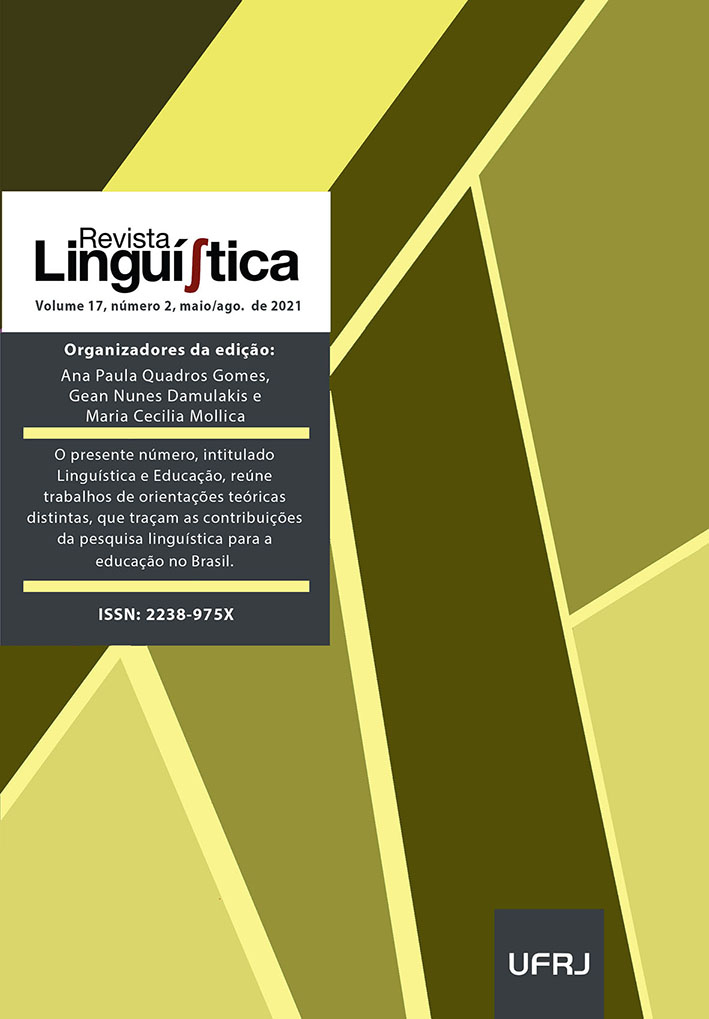BNCC in a dialogical perspective: focusing alterity in contemporary political-pedagogical discourse
DOI:
https://doi.org/10.31513/linguistica.2021.v17n2a40775Keywords:
BNCC, alteridade, políticas educacionais.Abstract
This article aims to discuss how the institutional discourse of the BNCC (Common National Curriculum Base) relates to alterity in its positions on Brazilian education. From the light of Bakhtinian thought on alterity (BAKHTIN, 2011), some excerpts from the BNCC are used in a dialogical (BAKHTIN, 2010; SOBRAL; GIACOMELLI, 2016; MAGALHÃES; SILVA, 2016) and indiciary analysis (GINZBURG, 1986), in order to understand which axiological positions run through the institutional discourse of BNCC when dealing with alterity in the contemporary Brazilian political-pedagogical context. Results of the analysis indicate the presence of at least three distinct axes that guide the conception of alterity in the BNCC and that reflect and refract historical, cultural, social and discursive legacies that are still a constant in the identity formation of Brazilians.Downloads
Published
Issue
Section
License
Authors who publish in the Revista Linguí∫tica agree with the following terms:
The authors maintain their rights, ceding to the journal the right to first publication of the article, simultaneously submitted to a Creative Commons license permitting the sharing with third-parties of published content as long as it mentions the author and its first publication in the Revista Linguí∫tica.
Authors may enter into additional agreements for the non-exclusive distribution of their published work (for example, posting in online institutional or non-profit repositories, or book chapters) so long as they acknowledge its initial publication in the Revista Linguí∫tica.

The journal Revista Linguí∫tica is published by the Post-Graduate program in Linguistics of UFRJ and employs a Creative Commons - Attribution-NonCommercial 4.0 International (CC-BY-NC).









